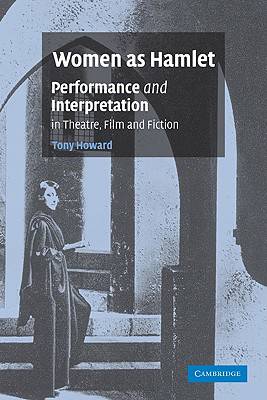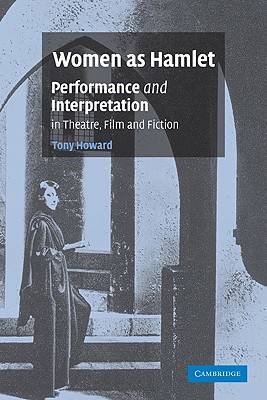
- Afhalen na 1 uur in een winkel met voorraad
- Gratis thuislevering in België vanaf € 30
- Ruim aanbod met 7 miljoen producten
- Afhalen na 1 uur in een winkel met voorraad
- Gratis thuislevering in België vanaf € 30
- Ruim aanbod met 7 miljoen producten
Zoeken
Women as Hamlet
Performance and Interpretation in Theatre, Film and Fiction
Tony Howard
Paperback | Engels
€ 73,95
+ 147 punten
Uitvoering
Omschrijving
The first Hamlet on film was Sarah Bernhardt. Probably the first Hamlet on radio was Eve Donne. Ever since the late eighteenth century, leading actresses have demanded the right to play the role - Western drama's greatest symbol of active consciousness and conscience. Their iconoclasm, and Hamlet's alleged 'femininity', have fascinated playwrights, painters, novelists and film-makers from Eugène Delacroix and the Victorian novelist Mary Braddon to Angela Carter and Robert Lepage. Crossing national and media boundaries, this book addresses the history and the shifting iconic status of the female Hamlet in writing and performance. Many of the performers were also involved in radical politics: from Stalinist Russia to Poland under martial law, actresses made Hamlet a symbol of transformation or crisis in the body politic. On stage and film, women reinvented Hamlet from Weimar Germany to the end of the Cold War. This book aims to put their half-forgotten achievements centre-stage.
Specificaties
Betrokkenen
- Auteur(s):
- Uitgeverij:
Inhoud
- Aantal bladzijden:
- 344
- Taal:
- Engels
Eigenschappen
- Productcode (EAN):
- 9780521117210
- Verschijningsdatum:
- 15/09/2009
- Uitvoering:
- Paperback
- Formaat:
- Trade paperback (VS)
- Afmetingen:
- 152 mm x 229 mm
- Gewicht:
- 503 g

Alleen bij Standaard Boekhandel
+ 147 punten op je klantenkaart van Standaard Boekhandel
Beoordelingen
We publiceren alleen reviews die voldoen aan de voorwaarden voor reviews. Bekijk onze voorwaarden voor reviews.











